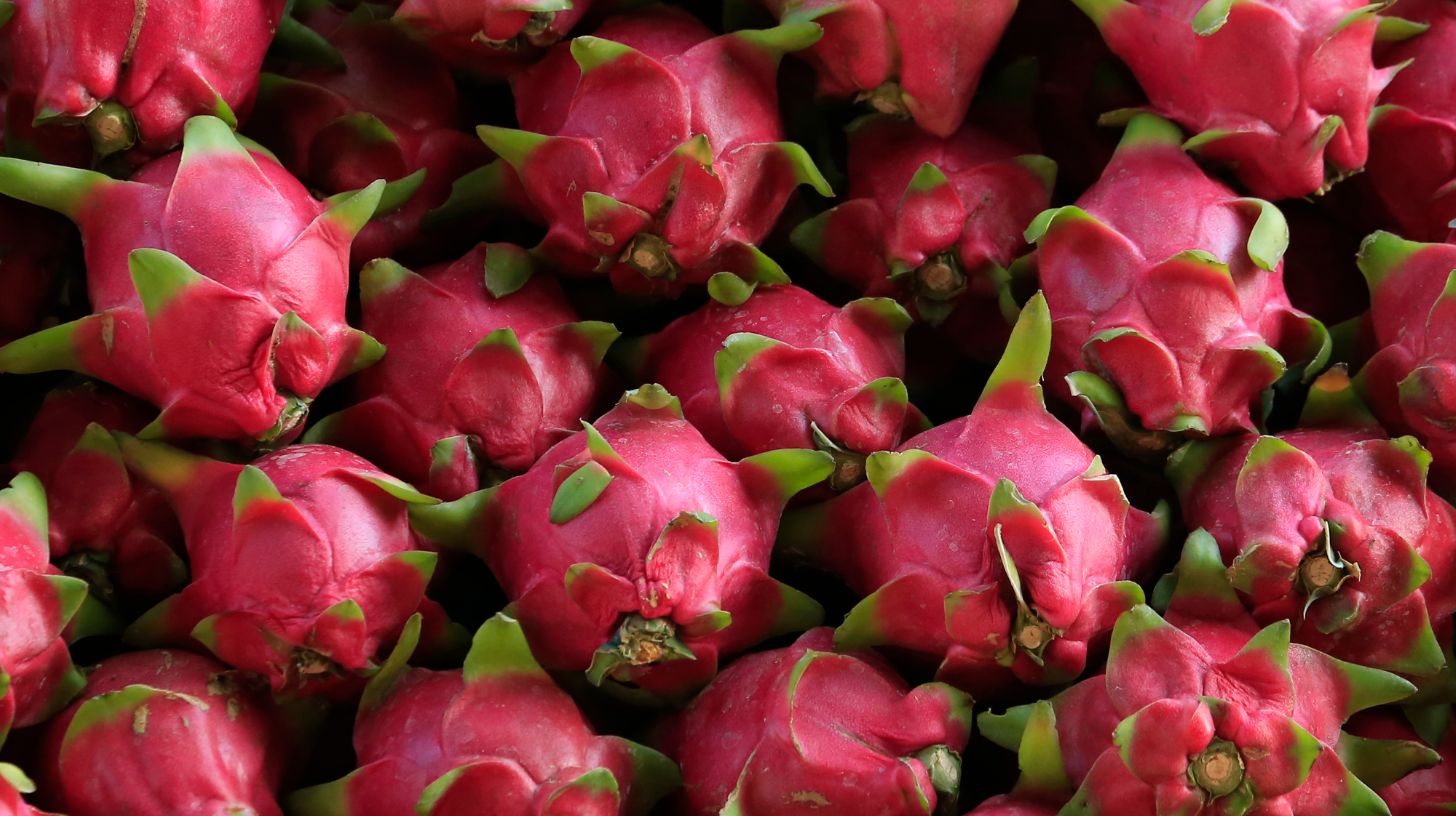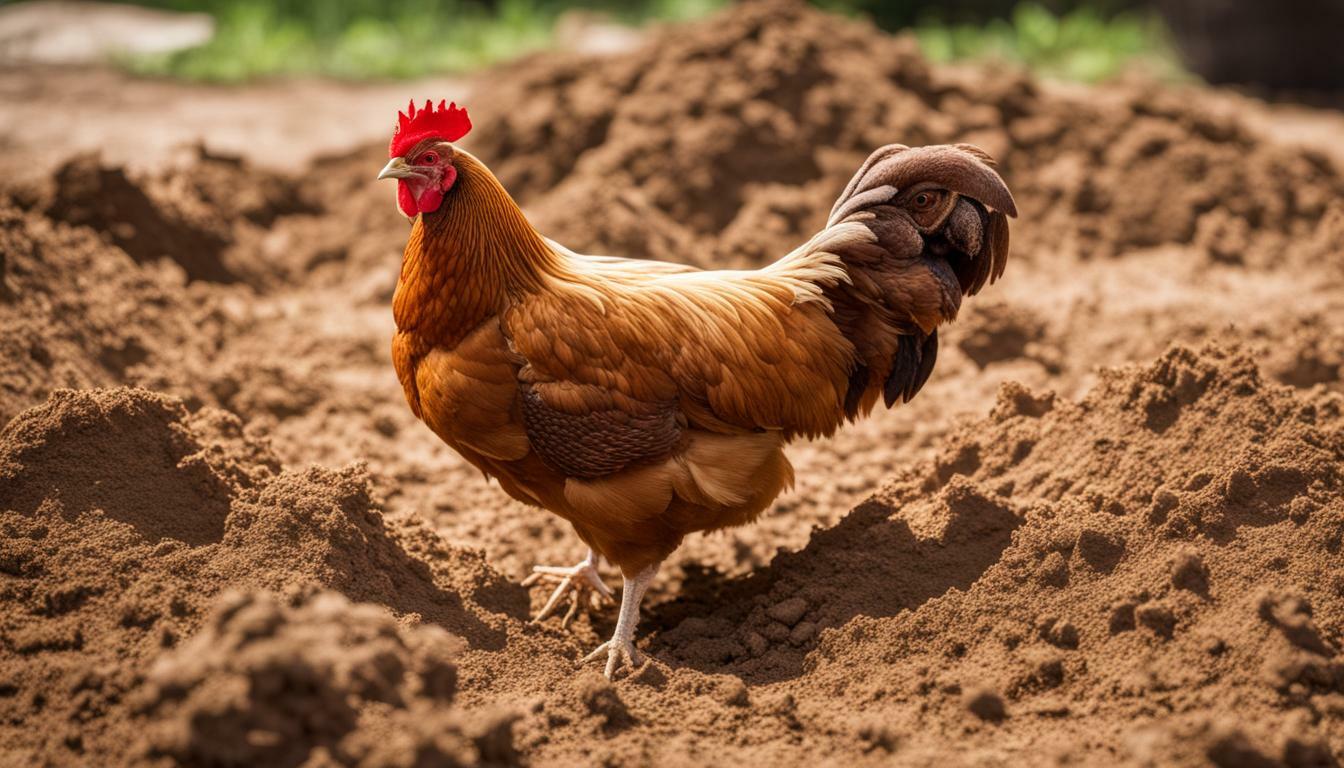Can Chickens Eat Dragon Fruit?

Table of content:
- The Benefits of Feeding Dragon Fruit to Chickens
- Is Dragon Fruit Safe for Chickens to Eat?
- How to Feed Dragon Fruit to Chickens
- How Much Dragon Fruit to Feed Chickens
- Can Chickens Eat Dragon Fruit Skin and Seeds?
- Dragon Fruit for Baby Chicks and Laying Hens
- Do Chickens Like the Taste of Dragon Fruit?
- Potential Concerns of Feeding Dragon Fruit to Chickens
- Dragon Fruit Precautions
- Can Chickens Eat Dragon Fruit Leaves and Flowers?
- Dragon Fruit-Fed Chicken Eggs: Taste and Nutrition
- Organic Dragon Fruit for Chickens
- Final Thoughts: Should You Feed Dragon Fruit to Chickens?
Dragon fruit is an exotic, tasty fruit that is growing in popularity. This unique fruit with pink or yellow skin and white flesh dotted with tiny black seeds can be found in produce sections of many grocery stores.
With its sweet, mild taste and crunchy texture, you may be wondering if chickens can eat dragon fruit as part of their diet. There are some important factors to consider before feeding dragon fruit to your flock.
The Benefits of Feeding Dragon Fruit to Chickens
Dragon fruit contains several key vitamins and minerals that can support a chicken’s health:
- Vitamin C – Helps promote a healthy immune system.
- Calcium – Needed for strong eggshells.
- Antioxidants – May reduce inflammation and cell damage.
- Fiber – Supports healthy digestion.
The seeds of the dragon fruit are also a good source of protein and healthy fats for chickens. This tropical fruit can add beneficial nutritional variety to a backyard flock’s diet.
Is Dragon Fruit Safe for Chickens to Eat?
Dragon fruit comes from the cactus plant Hylocereus species. All parts of this fruit, including the flesh, skin, and seeds, are safe for chickens to eat.
The flesh is low in sugar compared to other fruits, so it is unlikely to cause digestive issues if fed in moderation. There are no known toxins or harmful compounds for chickens found in dragon fruit.
Both red and white varieties of dragon fruit are safe for chickens. The red type may contain slightly higher levels of antioxidants, but both provide health benefits.
How to Feed Dragon Fruit to Chickens
Dragon fruit can be fed to chickens fresh, dried, or as part of a mixed fruit treat. Here are some feeding guidelines:
- Chop the fruit into smaller pieces or thin slices to make it easier for chickens to eat.
- Feed dragon fruit 2-3 times per week as part of a balanced diet.
- Offer bite-sized chunks – around 1-2 inches for standard sized chickens.
- Remove rinds and skins if they are tough to cut through. The skin can be fibrous.
- Mix some diced dragon fruit into chickens’ feed to encourage foraging.
- Hang larger chunks or halves of dragon fruit from ropes in their run for pecking enrichment.
- Compost overly ripe or unused dragon fruit scraps – don’t let them go to waste!
How Much Dragon Fruit to Feed Chickens
Dragon fruit should be fed in moderation as part of a varied diet. Too much can lead to loose droppings.
As a treat, chickens can eat around 1/2 cup of chopped dragon fruit pieces 2-3 times per week. Adjust amounts based on the size of your flock and how readily they eat it.
Free-ranging chickens that also forage for greens, seeds, and insects likely only need dragon fruit as an occasional supplement. Pay attention to their droppings to be sure the fruit does not cause diarrhea.
Can Chickens Eat Dragon Fruit Skin and Seeds?
Both the skin and seeds of dragon fruit are edible for chickens. Leaving the skin on provides extra fiber. The tiny, crunchy black seeds also supply protein.
Some people prefer to peel dragon fruits before eating them. But it is not necessary for chickens. Their digestive systems can break down the skin and seeds of dragon fruit without issue.
In fact, leaving the skin and seeds intact provides more nutritional value for chickens. They will happily eat every bit of the dragon fruit chunks they are given.
Dragon Fruit for Baby Chicks and Laying Hens
Dragon fruit can be fed to chickens of all ages. Here are some tips:
Baby Chicks
- Offer tiny pieces of soft, ripe dragon fruit soon after chicks hatch.
- The nutrients support rapid growth and development.
- Chop or mash thoroughly for easy eating.
Laying Hens
- The calcium aids in strong eggshell formation.
- Antioxidants support immunity for prime egg production.
- Feed 2-3 times per week for nutritional benefits without overfeeding.
Do Chickens Like the Taste of Dragon Fruit?
Chickens are naturally drawn to colorful, sweet fruits like dragon fruit. The mild, tropical flavor is palatable and appetizing.
To start, offer chickens small samples of dragon fruit. In most cases, they will eagerly gobble it up.
The flesh has a crunchy texture that chickens enjoy. Both the seeds and the flesh are high in nutrition to promote good health.
Trying new treats also prevents boredom and keeps backyard chickens actively foraging. The unique taste and appearance of dragon fruit make it a fun addition to their diet.
Potential Concerns of Feeding Dragon Fruit to Chickens
While dragon fruit is very healthy for chickens in moderation, there are a couple of potential drawbacks to be aware of:
Red Colored Egg Yolks
The red pigments found in red dragon fruit may cause a reddish tinge to egg yolks. This is purely cosmetic and does not affect egg nutrition or quality.
However, some chicken owners prefer the look of lighter colored yolks. If this is a concern, stick to feeding white dragon fruit varieties.
Dragon Fruit Precautions
Before offering any new treat, be sure it is free of harmful substances:
- Wash dragon fruit thoroughly and peel if needed to remove pesticide residue. Organic is ideal.
- Only feed fruit that is fresh and not moldy or overripe. Rotten fruit can contain toxins.
- Remove and discard seeds and skins if they appear very hard or fibrous.
- Introduce new treats slowly and in moderation to watch for any digestive issues.
With proper precautions, dragon fruit is a safe and healthy supplemental food for backyard chickens.
Can Chickens Eat Dragon Fruit Leaves and Flowers?
The fruit is safe and nutritious for chickens to eat. But other parts of the dragon fruit cactus should be avoided:
Leaves
Dragon fruit leaves and stems contain tiny spines that can pose a choking hazard or internal damage risk to chickens. Do not allow chickens access to actively growing dragon fruit plants.
Flowers
The flowers would also be difficult for a chicken to digest. They are needed by the plant to produce its edible fruits. Only offer the mature dragon fruit itself, not other plant parts.
Dragon Fruit-Fed Chicken Eggs: Taste and Nutrition
Eggs from chickens fed a diet with dragon fruit added in moderation will be similar in taste, color, and nutrition to typical eggs.
However, the dragon fruit’s beneficial antioxidants and vitamins may translate into an improved nutritional profile. The yolks in particular may be slightly richer.
Some people claim eggs from fruit-fed chickens have a sweeter, fruitier flavor. But it would likely be a subtle difference. Changing up a flock’s diet can keep their eggs tasting fresh and delicious.
Organic Dragon Fruit for Chickens
When purchasing dragon fruit to share with your flock, look for organic whenever possible. Conventional dragon fruits may contain pesticide residues.
Organic dragon fruit has the added benefit of higher antioxidant levels on average. This makes the nutritional benefits even greater for your chickens.
Growing your own dragon fruit is also an option, either in a greenhouse or outside in tropical to subtropical climates. Letting chickens forage and peck overripe fruits directly from the vines provides a natural supplement to their diet.
Final Thoughts: Should You Feed Dragon Fruit to Chickens?
In summary, dragon fruit can be a nutritious treat for backyard chickens. The entire fruit, including the skin and seeds, provides fiber, vitamins, minerals, antioxidants, and proteins.
Feed dragon fruit to chickens 2-3 times per week in bite-sized pieces. Watch for loose droppings as too much can cause diarrhea. Use organic fruit when possible.
The mild, sweet taste appeals to chickens of all ages. Both red and white dragon fruit varieties are safe for chickens to eat. Dragon fruit helps increase diet variety and enrichment for a healthy flock.
Welcome. I’m Adreena Shanum, the proud owner of this website, and I am incredibly passionate about animals, especially poultry. I founded adreenapets.com as a labor of love, stemming from my desire to share my knowledge and experiences with poultry enthusiasts worldwide.




